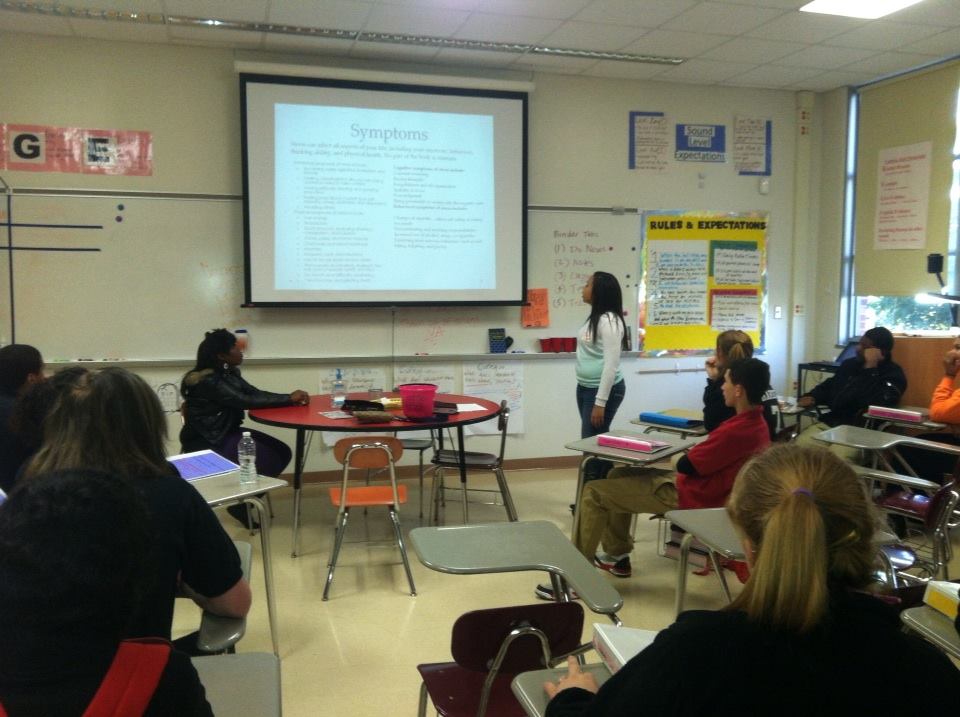
Teach for America (TFA) is a national teacher recruitment program that enlists recent college graduates and professionals to teach for two or more years in low-income communities throughout the United States. TFA aims to eliminate education inequity by mobilizing talented leaders who truly care about making an impact in young people’s lives and are committed to creating profound systemic change. TFA Corps members attend an intensive summer institute that trains them for their teaching commitments before becoming full-fledged, salaried faculty members in their schools. Successful corps members come from a diverse range of academic backgrounds from over 720 different universities.
To learn more about this unique program, we spoke with Natalie Eller, a 2012 – 2014 Teach for America alumna who taught in Indianapolis, Indiana.
1. What inspired you to apply for the Teach for America Fellowship?
I was a first-generation college student, and money was tight at home, so my schools growing up were my sanctuaries. I’m lucky I had good schools to go to. TFA’s mission to ensure that all students (regardless of what their parents do or the color of their skin) attend good schools and have good teachers as leaders, appealed to me. I also liked the idea of having a cohort of peers to learn from and connect with. Also, since I loved school growing up, the English nerd in me was excited about teaching high school English. Lastly, I knew at some point I wanted to work in local government, but that I couldn’t authentically work on behalf of or for a community if I did not have full-time experience working in one. TFA met the bill; it was an organization whose mission I cared deeply about, it offered an opportunity to build a community-level perspective, and it provided a strong professional network to tap into.

2. How did your Teach for America experience influence your current work?
Day-to-day life as a teacher was obviously extremely busy! Of all of my jobs, teaching was definitely the most mentally and physically taxing, but it was worth every coffee, weekends spent grading, and long nights spent lesson planning. You definitely learn how to take feedback and work to consistently improve and dedicate yourself to a cause bigger than yourself: the 100 or so students that depend on you every day.
I currently work at the New York City Department of Education in a policy role, so my TFA experience is extremely applicable. The growth I saw in my students and my school’s unique journey as a turnaround school (in Indiana a turnaround school is “taken over” by the state to an outside receiver after years of low performance in the district) prove to me that success and school improvement is possible. I witnessed improvement in our school’s grades, more students performing at grade level, heard from students that they liked school more since the turnaround, and kept in touch with some students who went to college. However, I still witnessed many students who did not have the support necessary to graduate high school or attend college straight away. Seeing examples of excellence on the ground, but knowing we still have a lot more work to do, drives my current work.

3. What tips would you give others applying for the Teach for America Fellowship?
Before applying, I would suggest ensuring you have a genuine interest in promoting educational equity, experience either from living or working in low-income communities, and a willingness to learn, be humble, and fail at many things. I also would suggest thinking about what your intention is after the two years of your TFA teaching commitment are over. I think TFA, for good reason, is looking for people who will commit to the classroom longer than two years and/or commit to working in the education and social justice field long-term. If you don’t intend to stay in the classroom and/or an education-related field afterward, I would suggest thinking about how you’d plan to advocate for students and low-income communities in whatever professional direction you’d like to go in after your TFA experience.
In terms of how to prepare for the application and interview, I think if you are genuinely invested in the mission, this will come through. During my time as an undergrad at the University of Virginia, I also prepared by tutoring at a local elementary school to see if it was really something I wanted to do. The sample lesson required in the TFA application process makes a lot of people nervous, so I would suggest keeping the goal of what you’re trying to teach simple and practice with friends. Good luck!
Natalie Eller is originally from Virginia and currently lives in Brooklyn, NY. She was a 2012 TFA corps member in Indianapolis, Indiana and taught high school English, Yearbook, and Newspaper. She holds a bachelor’s degree in American Studies and Urban Planning from the University of Virginia and currently works at the New York City Department of Education.
© Victoria Johnson 2017, all rights reserved.